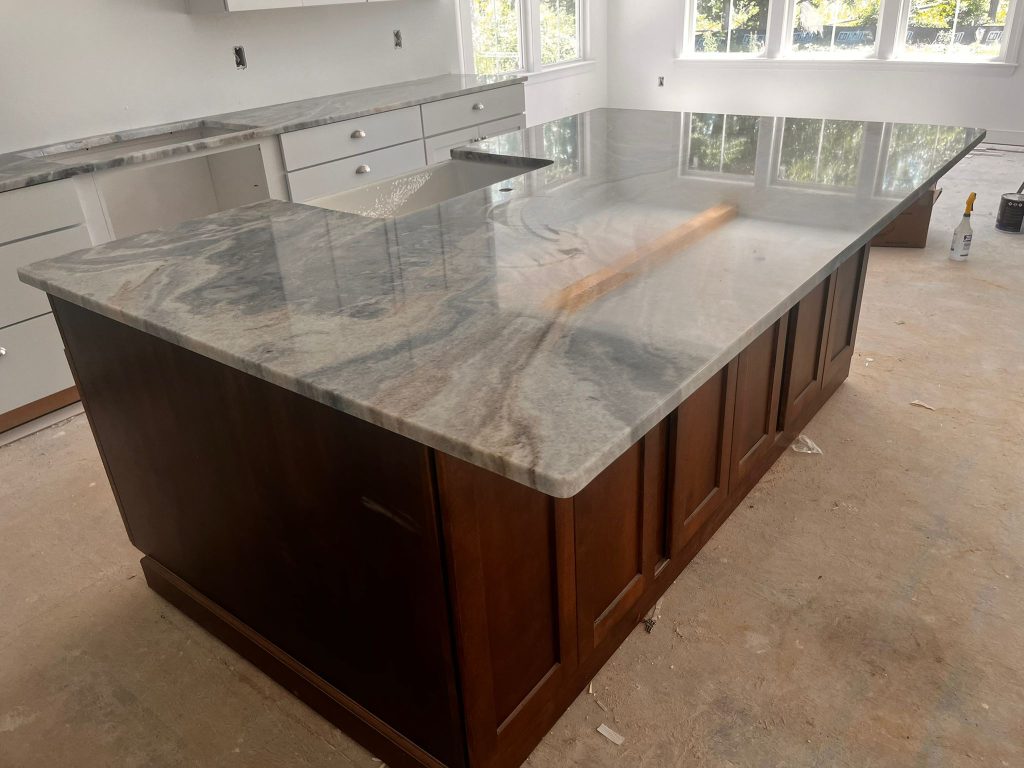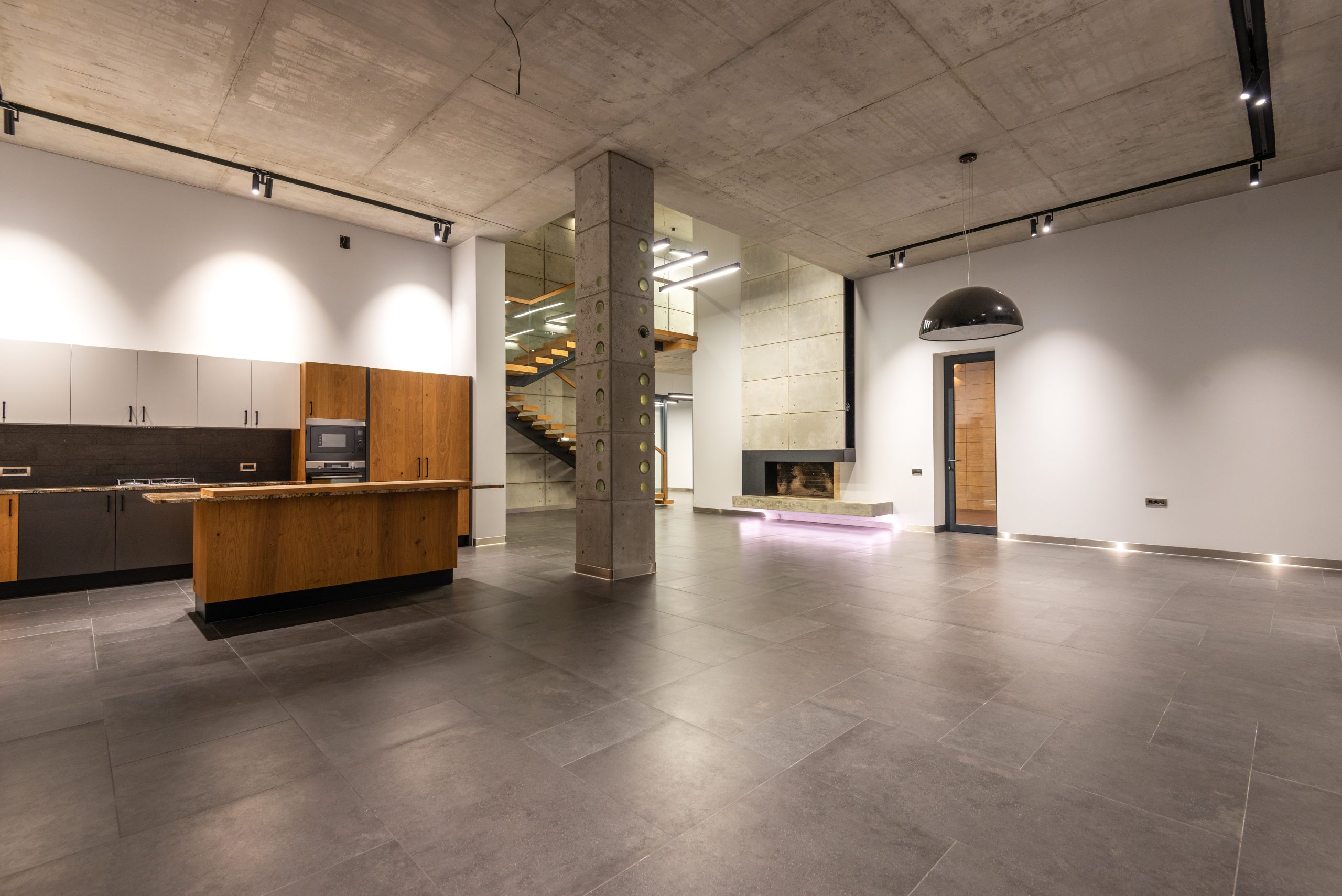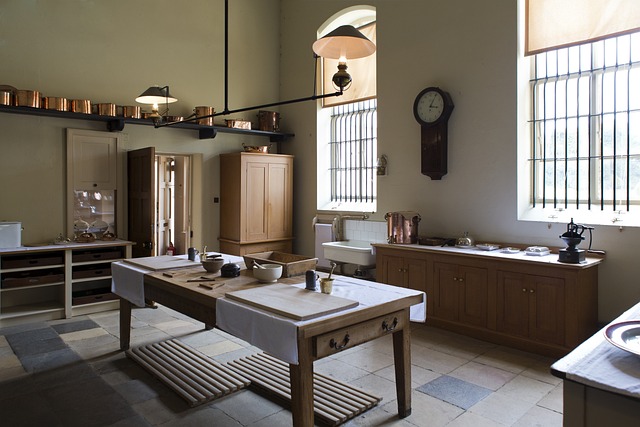The best type of stone to use in the kitchen depends on various factors such as personal preference, durability, maintenance, cost, and the desired appearance. Some of the most popular options include:
- Granite: Granite is a natural stone that is highly durable, heat-resistant, and scratch-resistant. It comes in a variety of colors and patterns, making it a popular choice for kitchen countertops.
Granite floors are a popular choice for their durability, beauty, and resistance to scratches, heat, and moisture. However, like any natural stone, granite floors do require regular maintenance to keep them looking their best.
The difficulty of maintaining a granite floor depends on several factors, including the type of granite, the finish, and the level of traffic the floor experiences. Polished granite floors require more maintenance than honed or flamed finishes, as they are more susceptible to showing scratches and wear.
To maintain a granite floor, you should sweep or vacuum it regularly to remove dirt and debris that can scratch the surface. Spills should be wiped up promptly to prevent staining. Granite floors should be sealed every 1-2 years to protect against staining and moisture damage.
For routine cleaning, a mild, pH-neutral cleaner is recommended to avoid damaging the surface. Avoid using abrasive or acidic cleaners, which can scratch or etch the surface of the granite. It is also recommended to avoid using harsh chemicals, such as bleach, ammonia, or vinegar, on granite floors.
In summary, maintaining a granite floor does require some effort, but it is not particularly difficult if you follow the recommended care and maintenance guidelines. With proper care, a granite floor can last for decades and retain its beauty and durability.
- Quartz: Quartz is an engineered stone that is made from natural quartz, resin, and pigments. It is non-porous, which makes it resistant to bacteria, staining, and scratches. Quartz is also easy to clean and maintain.
Is quartz an ideal stone for countertops? Yes, quartz is considered an ideal stone for countertops. Quartz countertops are made from engineered stone, which is a composite material made from natural quartz crystals and resins. They are non-porous, durable, and require minimal maintenance, making them an excellent choice for high-traffic areas like kitchens and bathrooms.

Quartz countertops come in a wide range of colors and patterns, making them a versatile choice for any interior design style. They are also stain-resistant, scratch-resistant, and heat-resistant, making them a practical choice for a busy household.
Unlike natural stones like granite and marble, quartz countertops do not require sealing. They are easy to clean and maintain, and most spills can be wiped away with a damp cloth and mild soap. However, acidic substances like lemon juice and vinegar should be cleaned up promptly to avoid etching the surface.
One potential downside of quartz countertops is that they are not as heat-resistant as some natural stones, so it’s important to use trivets or hot pads to protect the surface from hot pots and pans. Additionally, while quartz is a durable material, it can be prone to chipping or cracking if exposed to excessive force or impact.
Overall, quartz is an excellent choice for countertops due to its durability, low maintenance, and aesthetic appeal. However, as with any material, it’s important to consider your individual needs and lifestyle when choosing a countertop material.
Ultimately, the best stone for your kitchen will depend on your individual needs and preferences.
- Marble: Marble is a natural stone that is prized for its elegant, timeless appearance. Although it is not as durable as granite or quartz, marble can be sealed to prevent staining and scratching.
- Soapstone: Soapstone is a soft, dense stone that is naturally non-porous and resistant to bacteria and stains. It is also heat-resistant, making it a great choice for kitchen countertops.
Concrete: Concrete is a versatile material that can be molded into any shape and size. It is durable and resistant to heat, stains, and scratches. Concrete countertops can also be stained, sealed, and polished to achieve a variety of finishes.
Ultimately, the best stone for your kitchen will depend on your individual needs and preferences.






